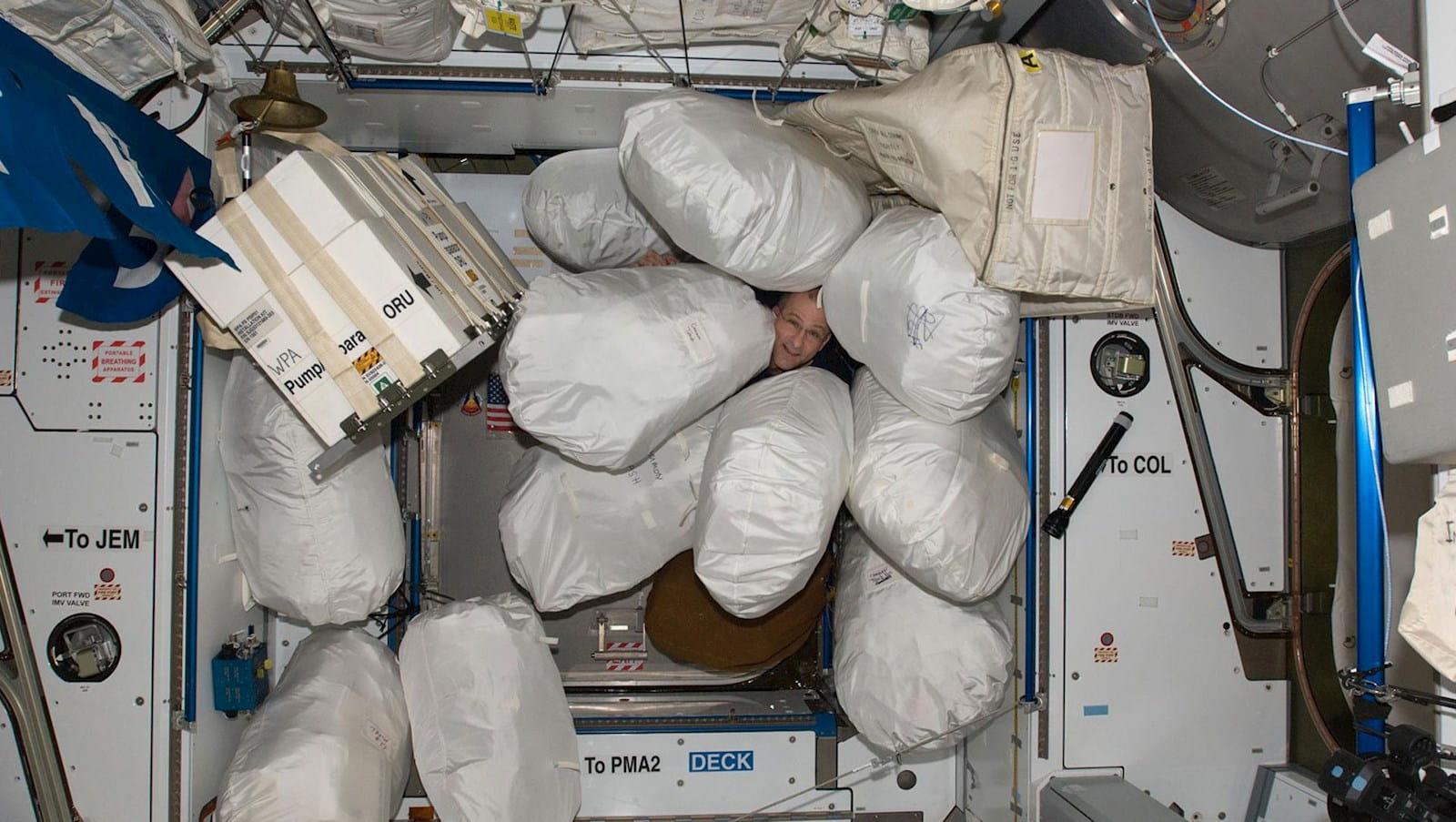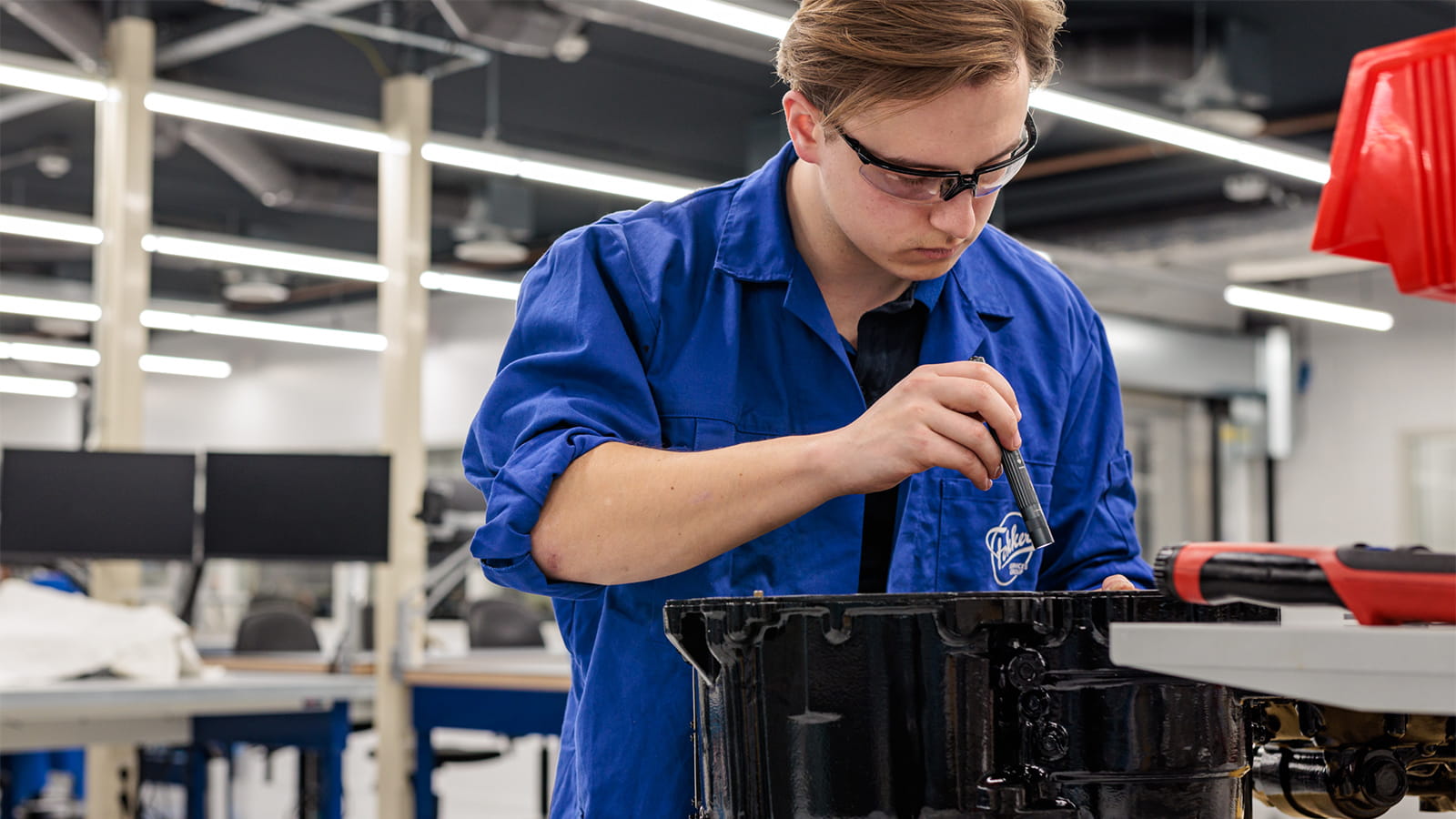How a trash compactor will help get astronauts to Mars
On the trip to Mars, space is limited
Rockets. Engines. Moon bases and exo-planetary vehicles. These are the things people picture when they think about sending humans to Mars.
But there’s one thing hardly anybody thinks of. And while it’s hardly one of those “straight-from-science-fiction” systems, it’s exceptionally important.
We’re talking about the trash compactor.
Collins Aerospace, one of four businesses of Raytheon Technologies, is working on a trash compactor that could solve a number of problems posed when you venture into deep space. It’s a small but fascinating part of the company’s overall work in human space exploration, which includes:
- Raytheon Intelligence & Space’s operation of NASA’s Neutral Buoyancy Lab, a large swimming pool where astronauts practice space operations and extra-vehicular procedures.
- Collins Aerospace’s life support systems, such as CO2 scrubbing technology for astronauts aboard the International Space Station, environmental and thermal control technology which helps maintain an earth-like atmosphere while in spacecraft, and power management systems for NASA’s Orion. Collins also helped design the space suits that enabled space walks for past and present NASA astronauts.
- RGNext, a joint venture that provides launch range services, test and evaluation operations and catalogs space objects.
But for now, back to the trash compactor.
Saving space
According to NASA, astronauts aboard the ISS produce two tons of trash every couple of months. Their procedure for handling it is much the same as ours; jam it into bags and wait for someone to come haul it away.
Someone, in this case, are the resupply vehicles. While that works fine for the ISS, it won’t do for a mission to Mars. The system Collins is building can help – it can take a heap of trash the size of a beer keg and squash it into something just as round but substantially more flat.
“We're in the early stages of that proof of concept,” said Shawn Macleod an associate director of civil space and sea systems at Collins Aerospace. “The idea of this trash compactor is you're just going to take all of your trash on orbit, except for human waste, throw it in this compactor and smash it down to the size of a pizza.”
Protecting against space radiation
“Trash pizzas” is fun to say, but it turns out they may also be incredibly useful.
Specifically, they might help shield the intrepid explorers against the harmful radiation they incur outside Earth’s magnetosphere and atmosphere. NASA estimates that astronauts experience enough radiation to equal 150 to 1,600 chest X-Rays. Prolonged missions require extra shielding, as neither Mars nor the moon have natural defenses against space radiation.
Much of the trash from space missions is plastic, made of polyethylene, and better at reducing radiation than metals. These trash discs can be outfitted to space vessels to increase radiation shielding as the astronauts travel further along on their voyage.
Providing a source of water
Weight is an important part of any space mission – namely, bringing as little of it on board as possible.
According to NASA, it costs roughly $10,000 to put a pound of payload into orbit with today’s technology. It will be costly, if not impossible, to launch astronauts with all the water they will need on the 14-month trip to Mars and back.
Which means astronauts have to be — how can we put this — very efficient. We’ll let Macleod explain.
“Today's coffee becomes tomorrow's coffee,” he said. “All of the water I drink, it goes through me. I sweat it, it comes out of me, and it makes its way into the system, and then it’s transformed into something useful — like potable water or oxygen — tomorrow.”
And here’s where the trash compactor comes through again. It can squeeze water from whatever the crew throws away.
With NASA planning to set up a permanent human presence in deep space and ultimately get humans on Mars, there will be a larger reliance on launch coordination, life and power systems and resource efficiency — all of which Raytheon Technologies businesses are working on the foundational stages of right now.
“Part of our job right now at Collins is to develop a lot of these early stage technologies, like the space trash compactor, because ultimately we need to discover and develop transformative technologies that'll enable that Mars mission,” said Macleod.



